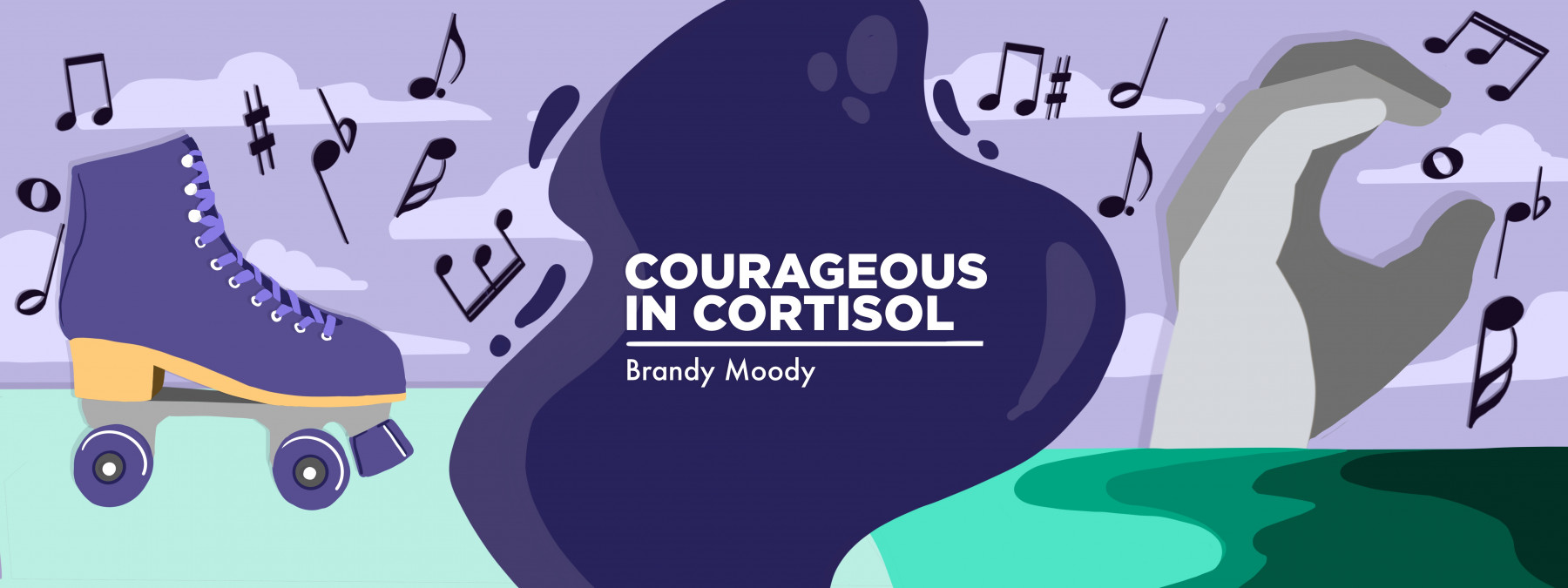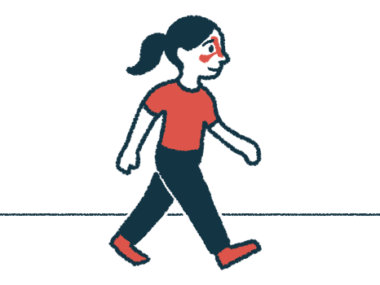How to Recognize Symptoms of Cushing’s Disease and PCOS
Written by |

Diagnosing Cushing’s disease is a tough task, and I’m sure anyone who has gone through the diagnostic process can attest to that. Cushing’s can be cunning because its symptoms can appear as though they’re separate issues, rather than part of a bigger problem.
Unfortunately, many social media users are being misled about those symptoms. For instance, I’ve been seeing a lot of misinformation spread about symptoms of Cushing’s disease and the relatively common hormonal disorder polycystic ovary syndrome (PCOS).
In PCOS, the ovaries produce an excess amount of androgens, or male sex hormones. Women may develop cysts on their ovaries, which can disrupt ovulation and result in infertility.
Cushing’s is characterized by excess cortisol. In Cushing’s disease, high cortisol levels are often caused by a pituitary adenoma, while Cushing’s syndrome may be caused by an adrenal tumor, an ectopic tumor, or overuse of steroids. The difference is the cause of excess cortisol. Both conditions result in the same symptoms.
I’ve seen content creators on TikTok and Instagram claim that many Cushing’s symptoms are caused by PCOS, while making no mention of Cushing’s. These social media claims suggest that PCOS is responsible for high cortisol levels, moon face (a rounded face that alters your appearance), and a buffalo hump (a fat pad on the base of your neck). Not true.
Worse, when Cushing’s patients try to correct this misinformation, the content creators sometimes delete the Cushing’s patient’s comments and block their accounts. This can ultimately mislead social media users who have these symptoms and delay their correct diagnoses.
It’s true, however, that Cushing’s and PCOS do share some symptoms: weight gain, hirsutism, irregular periods, thinning hair, acne, reduced fertility, and insomnia. In PCOS alone, you will see polycystic ovaries and excess androgen.
Now, let’s look at Cushing’s disease symptoms: purple striae (or stretch marks), buffalo hump, moon face, random bruising, thin skin, insulin resistance, thinning hair or hair loss, inflammation, swollen limbs, water retention, weight gain (particularly in your stomach area), hirsutism, irregular menstrual cycles, acne, infertility, joint pain, body and muscle aches, insomnia, severe fatigue, high white blood cell count, irritability, mood swings, loss of emotional control, cognitive difficulties, high blood pressure, muscle weakness, low libido, headaches, depression, anxiety, panic attacks, osteoporosis, brittle hair, gray hair, and an electric, burning, or buzzing sensation all over the body.
Whew. Sorry, I know that was a lot. Now I hope you can see the severity of this disease and why it’s so important that correct information is spread. In one video I saw, the creator claimed that PCOS causes moon face and excess cortisol. Yes, PCOS can cause weight gain in the face, but this is not the same as moon face. The tip they suggested to help lower cortisol was to reduce screen time before bed.
I want to emphasize this: If you have a high amount of cortisol in your body, get checked for Cushing’s disease.
Almost by definition, Cushing’s disease is an excess amount of cortisol in your body. No amount of screen time reduction will minimize the amount of cortisol your body is overproducing. There is a difference between your body releasing excess cortisol during times of stress and your body chronically overproducing cortisol due to an underlying health condition.
It’s possible to have PCOS and Cushing’s disease at the same time. If you or someone you know is experiencing any of these symptoms, please don’t assume it’s PCOS. Get checked for Cushing’s!
Note: Cushing’s Disease News is strictly a news and information website about the disease. It does not provide medical advice, diagnosis, or treatment. This content is not intended to be a substitute for professional medical advice, diagnosis, or treatment. Always seek the advice of your physician or other qualified health provider with any questions you may have regarding a medical condition. Never disregard professional medical advice or delay in seeking it because of something you have read on this website. The opinions expressed in this column are not those of Cushing’s Disease News or its parent company, Bionews, and are intended to spark discussion about issues pertaining to Cushing’s.







Jennifer
Great article! I see so many patients that have been given the diagnosis of PCOS when in fact there is an underlying condition-I’ve found many actually had hypercortisolism! I applaud you for mission to spread the word-hopefully more clinicians will catch on and SCREEN!
Vanessa B
Yes, great article. I think many people have undiagnosed Cushing's due to this misinformation being spread about on social media. I got hit with insomnia and blood sugar issues in 2018. After countless doctors only prescribing me sleeping pills, I decided to go a more holistic approach and sought out a Naturopath. She tested my cortisol levels which were significantly high at midnight. She sold me supplements and sent me on my way. Still didn't help. I looked up high cortisol on the net and found countless "lower your cortisol" videos and articles. Cushing's was not exactly at the top of it. I denied the few "Cushing's" articles because I was not and have never been obese. All these "wellness" influencers make a person think that high cortisol can only be caused by chronic stress or PCOS. It's so important to use discernment in this age. But it's equally as important to speak up about this so that more women are not endlessly suffering for years thinking they just have too much stress. Thank you for sharing this.
Tiffany Caudle
Thank you for this very informative and important article!! I'm 45, I was diagnosed with PCOS and endometriosis about 15 years ago and had to have a full hysterectomy 6 years ago. I was diagnosed with Cushing's disease about 6 months ago, had rapid weight gain (30 pounds in 4 months), buffalo hump, and several other symptoms. I had a tiny pituitary tumor removed about 3 months ago but I've gained weight since surgery and still have several symptoms. I just had a brain MRI and might have another pituitary adenoma. My neurologist thinks my main issue is PCOS because my cortisol levels aren't that high and dropped significantly after surgery. My endocrinologist who diagnosed me obviously thinks I have persistent/cycling Cushing's. I think I have both but it's just so confusing! I'm getting an IPSS test and praying for answers!! Any additional advice welcome!! Thanks!!
Nan Butterfield
My daughter had Cushing’s disease. She battled it for so many years. She had to have her adrenal glands removed. She suffered several adrenal crises - the last one took her life 3 1/2 years ago at 35 years old. I miss her so so much! Please take care of yourselves! Tell your caregivers to take it seriously! I took it so seriously. The one time I did not get Danielle to the ER was the one time she died.
Meghan
Thank you! I’ve seen many of these social media posts and have fought with them a lot and have tried to educate them as well as any reader. It’s maddening. I feel high cortisol is being used to market people’s health products because the symptoms overlap with so many other illnesses that they would con more people into buying their product.